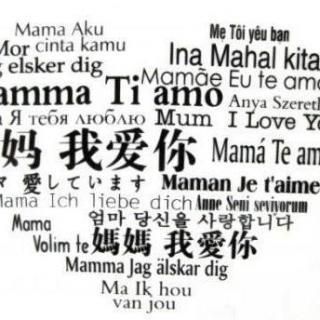
介绍:
Heyang: Many languages have been claimed to be the toughest one to learn. Here are ten candidates for the title of "hardest language to learn," as released by the United Nations Educational Scientific and Cultural Organization. After our discussion, see if you could find these languages are worth their "tough as nails" reputation.
First of all, are you surprised, with these results of this list? And tell me what they are?
Luo Yu: The most difficult language turns out to be Chinese. Sam as a very experienced Chinese learner, probably can share with us some of your thoughts on how to learn the language.
Sam: First of all, this list is completely rubbish. This is the most terrible list I’ve ever seen. (Really?)
HY: Even before going through the list, you are like ‘it’s not worth it.’
Sam: If Chinese is number one, then this list has already failed. And they’ve got French at ten. French!
HY: Yeah, Chinese! Obviously number one! So difficult.
Sam: Chinese should not be number one, a few reasons…This list is not specific enough. If you are talking about language for English native speakers to learn, then French is ten, because of similarities between French and English, and experiences of an average English speaker learning French at school. There’s no way that French is at ten. The reason that we do it in England is it’s quite easy. But I’ll ignore that now and stay on track. But Chinese is number one?!
HY: The only thing I got out of that was that (Sam: Sorry, I need to calm down)…yeah…is Sam doesn’t think it’s that difficult to master the language.
Sam: Here’s the thing, when I was in university I studied Chinese as my major and I did a minor in Japanese. I’m proficient in both languages for disclaimer. And Japanese was just the much more difficult language. It’s fifth on the list, but it is twice as hard.Cos first of all, you have three different types of written characters. You havehitigonakitigona and kazi (hanzi). So you have Chinese characters. H is used for Japanese traditional words, and you have K which is used for foreign words. So like for the word supermarket, Japanese would be su-pa-ma-k-to, you have to write it in special characters for English sounding words.
Then you get their grammar is completely flipped around. And I think it’s the most complicated grammar an English person can learn. In Chinese, you barely have grammar. It just like ‘where are you going?’ 你去哪?it’s just three simple words and you get the tones right. I just can’t see how something with simple grammar, with words that are all quite short and easy to remember…the characters in Chinese are quite difficult to write, the tones are quite difficult to master, but that aside, there’s nothing else that distinguishes it as a language that’s much more difficult than the rest of the ones on this list, especially Japanese, Korean and Arabic.
LY: But how about those characters with so many strokes at the same time, as we see in biangbiangmian. Also what about those homophones 同音异形异义字 in Chinese.
Sam: you bring up a great point Luo Yu. You talked about those different characters. I just like to make the quick point here if you are looking into Japanese text, they are all in traditional Chinese characters.
LY: Because of influence…
Sam: It doesn’t matter why. The reasoning is not important, it’s the way it is the fact that you have to be able to write in traditional Chinese…
HY: I certainly can master the Chinese language, so therefore I find Japanese a lot easier. So I think it really matters what you bring with you into this learning process and that will determine what result you find.
大家还在听

